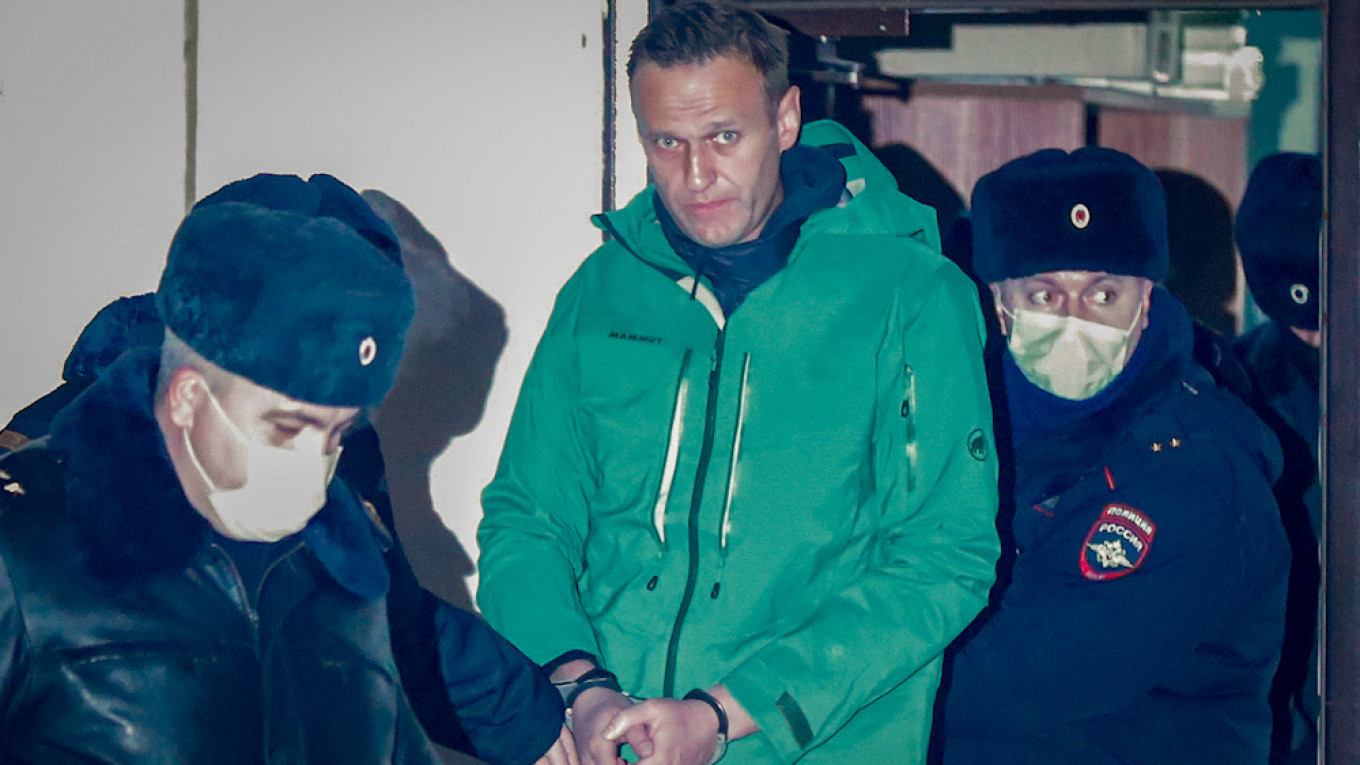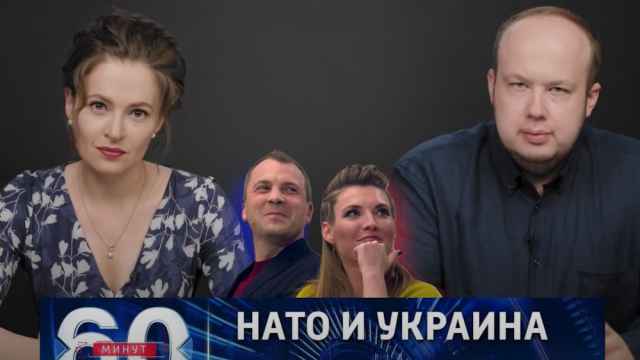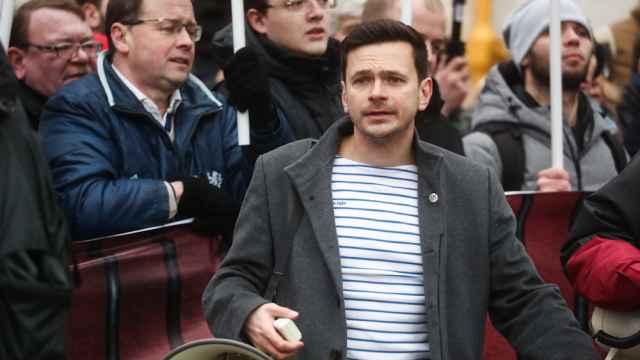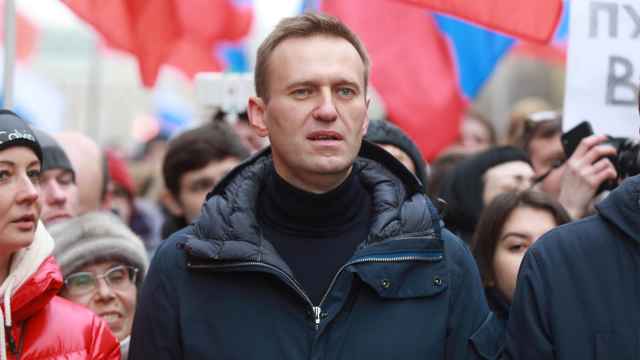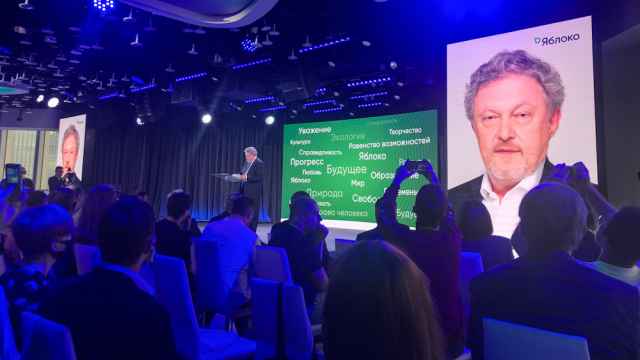The dramatic arrest of Russian opposition activist Alexei Navalny at a Moscow airport on Sunday is the latest in a series of self-inflicted wounds by the Kremlin. The most egregious was the state-backed assassination attempt against Navalny using a military-grade nerve agent.
Taken together, the Kremlin has indisputably propelled him to the leadership of Russia’s beleaguered opposition, and in the process undercut one of its long-running political strategies over the past two decades: strengthening President Vladimir Putin’s standing by ensuring that the political landscape remains free of any meaningful political challengers.
Most of the current media attention focuses on Navalny’s bravery in returning home to face almost certain arrest and confinement.
That decision was fairly straightforward: had Navalny remained in Germany, he would simply have joined the ranks of Putin’s many critics living in exile.
The Kremlin’s hard-edged treatment of Navalny has backfired spectacularly. Having miraculously survived the poisoning, he has become something of a mythical hero, resurrected and given a second chance: not to live out his days peacefully abroad, but to conquer evil, defy death, and defeat his enemies.
The Russian authorities faced their own dilemma of how better to demonstrate the insignificance of their opponent: arrest him (for the Orwellian charge of allegedly breaking the terms of a 2014 suspended sentence for embezzlement), or pretend to ignore his return? The plot to kill Navalny demanded a secret operation that could be denied for all eternity. Arresting him is an open act by the state that cannot be denied: it must be explained and justified.
Instead of trying to justify the poisoning, the state has put forward a preposterous allegation against Navalny: he is not an opposition figure, but an agent for foreign intelligence services. He is being sent to Russia by its enemies to promote regime change, which is supposed to make it impossible for patriotically minded fellow Russians to defend him. This version has been repeated at every level since the poisoning, including at the very top. Ominously, it moves Navalny from the category of enemies — whom Putin pretends to fight respectfully — to that of traitors, for whom no rules apply.
Navalny’s position in Russia has completely changed since his poisoning and miraculous recovery in Germany. He has stopped being a figure in domestic politics and, in the eyes of the outside world, has become the most prominent and dangerous critic of Putin: the anti-Putin, and Russia’s number two politician. Accordingly, for the Russian authorities, he is no longer a domestic problem that the corrupt elites can direct against each other, but an instrument of foreign aggression.
Navalny was visited by German Chancellor Angela Merkel herself soon after he regained consciousness, and his arrest immediately upon his return from being a guest in her country doesn’t look very diplomatic. It will make it even harder to establish relations with the incoming U.S. administration. But aggression rarely leaves much room for diplomacy.
What matters is not how things look to critically minded Russians or foreigners; it’s how to stop foreign interference. Unfortunately for the authorities, this gambit has clearly failed.
Instead of blackballing Navalny, the Kremlin has turned him into the world’s most famous political prisoner. By being elevated, Navalny is becoming, in the eyes of the world and potentially the Russian people, the antipode to Putin.
Up until now, everything that the state has done to try to counteract Navalny has only made him into a hero, starting with Putin’s superstitious refusal to speak his name. The authorities have brought about precisely what they were seeking to avoid.
Navalny’s leadership of the Russian opposition and his authority among skeptics of the current regime have grown. Not so long ago he was bickering with independent journalists; now even some Putin loyalists are, if not on his side, then certainly not on the side of his poisoners and persecutors.
It is harder now to criticize Navalny. Foreign politicians and journalists who were previously wary of Navalny’s former experiments with nationalism are now prepared to forget about all that, along with the fact that, judging by his comments, he is still not a typical pro-Western politician in an anti-Western country, and has not promised to change Russia’s geopolitical orientation.
In other words, Navalny may be a Putin critic, but he does not fit the template of a pro-Western liberal who could easily be mocked and destroyed in the eyes of fiercely patriotic Russians. Meanwhile, Navalny’s wife Yulia is turning into an influential politician in her own right, not unlike the unexpected and dogged threat that Svetlana Tikhanovskaya has become to the Belarusian regime.
Navalny himself remains the leading opposition politician, and in authoritarian systems, as soon as people stop supporting the number one politician, that popularity gets redirected to the first suitable candidate.
The Russian authorities will have to decide what is more menacing: the real Navalny, who will be a political gadfly in the upcoming and future elections, or the legendary Navalny, a mythologized and persecuted figure who will very likely be able to focus people’s frustration, resentment, and desire for change.
Having done everything to create the myth around Navalny, the state may try to dispel it. But to do that, Navalny would first have to be returned to everyday politics, and the consequences of allowing that are unknown. After all, the rules of the literary genre dictate that he will come back stronger than ever before.
A Message from The Moscow Times:
Dear readers,
We are facing unprecedented challenges. Russia's Prosecutor General's Office has designated The Moscow Times as an "undesirable" organization, criminalizing our work and putting our staff at risk of prosecution. This follows our earlier unjust labeling as a "foreign agent."
These actions are direct attempts to silence independent journalism in Russia. The authorities claim our work "discredits the decisions of the Russian leadership." We see things differently: we strive to provide accurate, unbiased reporting on Russia.
We, the journalists of The Moscow Times, refuse to be silenced. But to continue our work, we need your help.
Your support, no matter how small, makes a world of difference. If you can, please support us monthly starting from just $2. It's quick to set up, and every contribution makes a significant impact.
By supporting The Moscow Times, you're defending open, independent journalism in the face of repression. Thank you for standing with us.
Remind me later.



